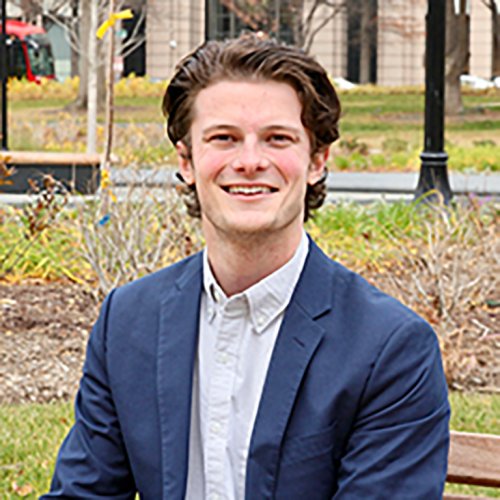
Where are you from and what were you doing before enrolling in graduate school?
I am originally from Beverly, Massachusetts, a small coastal town north of Boston. I’ve been in Southern California since receiving my undergraduate degree from Pitzer College, a member of the Claremont Colleges, where I studied environmental policy and media studies. Before enrolling in graduate school, I was working remotely for the National Caucus of Environmental Legislators (NCEL), a D.C.-based nonprofit organization that assists state lawmakers in all 50 states in learning about and collaborating on environmental policy. I currently serve as the communications associate at NCEL.
How did you learn of the degree program and why did you choose USC Annenberg?
I learned about the degree program and chose USC Annenberg thanks to conversations I had with members of the USC community. After spending three years in the workforce, I started researching graduate programs that could strengthen my skill set in communications. I had been aware of USC as one of the top institutions to study communications and media for some time, but I ultimately chose USC Annenberg after interacting with current faculty and students, who all were friendly, passionate about their work, and eager to speak about the caliber of content taught at USC Annenberg. Within Annenberg, there were a couple of programs I was interested in, but a representative from the Admissions Office encouraged me to consider the Public Relations and Advertising Master’s program based on my career interests. I ultimately decided on PRA due to the well-rounded nature of the program — course material emphasizes storytelling and creative strategy, in addition to fostering expertise in communication fundamentals, strategy, and leadership.
What have you enjoyed most about the degree program?
I have really enjoyed how the PRA program provides the diverse opportunities and connections of USC Annenberg while delivering highly applied course material in small-class settings. In all of my classes, I am able to meaningfully interact and collaborate with other students, while learning from professors with highly actionable industry knowledge and connections. I feel that I can simultaneously benefit from the “big school” setting of USC, while also engaging on a deeper level with my classmates and course material.